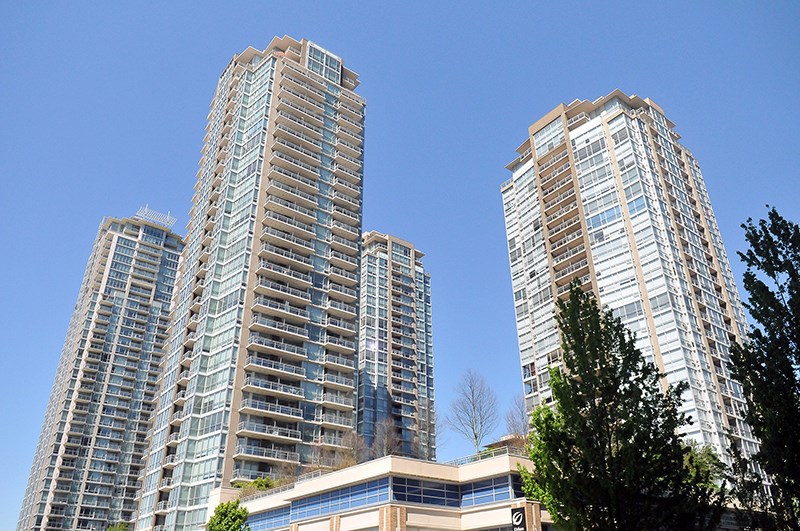With hundreds of people moving into new highrise developments in Coquitlam, coming up with a survival strategy for dealing with disaster is becoming increasingly important, says the city's manager of emergency programs.
While everyone should have an emergency plan in case of a disaster, people who live on the top floors of the city's tallest towers should be even more pro-active because food and water could be difficult to obtain when the power is out, Greg Kanya says.
"Residents need to start to think about building networks, their friends and family, and with other residents in the building," Kanya said, noting that people with mobility issues could be extremely vulnerable if they live on an upper floor and have no way to get out.
"The biggest challenge I have is people's indifference. That's been a challenge from day one," Greg Kanya, Coquitlam's manager of emergency programs
Recent counts suggest the city has more then two dozen buildings of 20 storeys or more — including the new M3, which is 48 storeys — making it even more important for these condos to have a strong, active strata council with an interest in planning for emergencies.
To help them get started, the city offers free sessions on emergency planning to any group that can muster 15 people to take part.
For the most part, surviving a disaster is still mostly a personal responsibility. That's why it's important to be realistic about your ability to get out of an apartment. Kanya recommends considering what floor the unit is on before buying or renting.
"I'm baffled why someone with a mobility issue lives on the 17th floor of a highrise," Kanya told The Tri-City News. But because the city hasn't yet been hit with a damaging quake, the issue is rarely at the forefront of people's minds.
Kanya also advises getting on a list of people who need special care in an emergency and have directions written clearly in English so people responding in an emergency know what to do. This is especially critical if the condo dwellers don't speak English.
"These people are kind of stuck, so it's critical to have that information ahead of time."
People should also make sure their insurance covers disasters such as an earthquake.
"This will always speed up your recovery process, whether it's a fire or an earthquake or any other disaster," Kanya said.
MODERATE RISK
It's hard to imagine the city devastated by a high magnitude earthquake and the Tri-Cities may only be at moderate risk of an earthquake, according to the Institute for Catastrophic Loss Reduction.
But living between rivers that can flood, forests that can burn, pipelines that can burst and near railways with trains carrying flammable materials offers any any number of scary scenarios.
For Coquitlam residents, and anyone else in the Tri-Cities, staying safe means being prepared.
"Everyone should have a personal emergency plan in place, such as having an emergency kit, supplies that will last a minimum of 72 hours, up to a week, such as food, water, whatever else is needed, such as medications, and a communications plan," says Kanya.
This advice is well-known and heavily promoted but how many people take it seriously?
"The biggest challenge I have is people's indifference. That's been a challenge from day one."
— May 1-7 is Emergency Preparedness Week. For more information, visit here.



